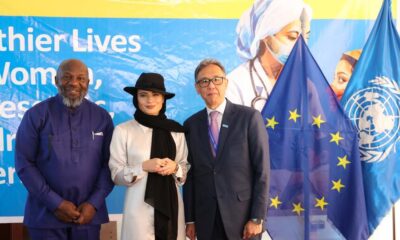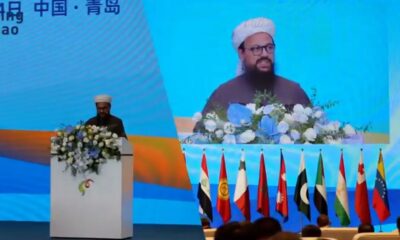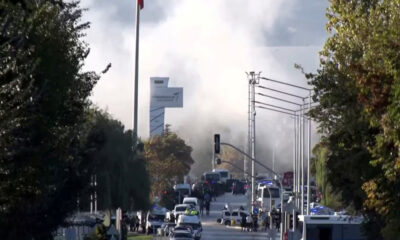Latest News
CSTO security alliance meets on Afghanistan

The Collective Security Treaty Organization (CST) said that its 37th meeting of the Working Group on Afghanistan was held on Thursday.
The event was attended by delegations from the organization's member states, the CSTO Deputy Secretary General S. I. Ordabaev, Charge d'Affaires of Afghanistan in the Russian Federation, representatives of the United Nations Regional Centre for Preventive Diplomacy for Central Asia and others.
“There was a detailed exchange of views on the situation in Afghanistan. The participants noted the persistence of unfavorable trends in the security situation, including the growth of terrorist and drug threats emanating from the territory of this country. It was noted that Afghanistan was still in a difficult economic situation and the Afghan people were facing problems in the social and humanitarian sphere,” CSTO said in a statement.
The Islamic Emirate, however, rejects claim of growth of terrorist and drug threats emanating from Afghanistan.
"The concern expressed by the CSTO is not true. Afghanistan is now secure and stable. It is completely different from years ago. The people of Afghanistan and the world understand this. Misrepresenting the situation means they are not considering the facts. The rumors that are being spread are based on false information,” Zabihullah Mujahid, IEA’s spokesman said.
CSTO is an intergovernmental military alliance in Eurasia consisting of six post-Soviet states: Armenia, Belarus, Kazakhstan, Kyrgyzstan, Russia, and Tajikistan.
Separately, Indian Defence Minister Rajnath Singh and his Iranian counterpart Mohammed Reza Gharaei Ashtiyani on Thursday exchanged views on regional security issues, including peace and stability in Afghanistan.
They also discussed the development of the International North South Transport Corridor to ease logistic problems to Afghanistan and other countries in Central Asia, India’s defense ministry said.
The INSTC is a 7,200-km-long multi-mode transport project for moving freight among India, Iran, Afghanistan, Armenia, Azerbaijan, Russia, Central Asia and Europe.
Latest News
EU donates €31 million to support health sector in Afghanistan

The European Union has allocated €31 million ($33 million) to the World Health Organization (WHO) and the United Nations Population Fund (UNFPA) to support Afghanistan's health sector.
The EU said in a statement on Thursday that €16 million has been allocated to the WHO and €15 million to UNFPA.
The aid is to improve the provision of quality health services for non-communicable diseases (NCDs), including cancer, and expand reproductive, maternal, neonatal, child and adolescent health services in Afghanistan.
This union also emphasized that the aid will support mothers, children and teenagers in the remote areas of Afghanistan.
EU described the health condition of pregnant women, babies and children in Afghanistan as dire and added that the death rate among them is at the top of the world list.
Every two hours, a mother dies from preventable complications related to pregnancy and childbirth, the statement said.
Latest News
China’s Belt and Road Initiative vital for expansion of trade and energy: Mansour
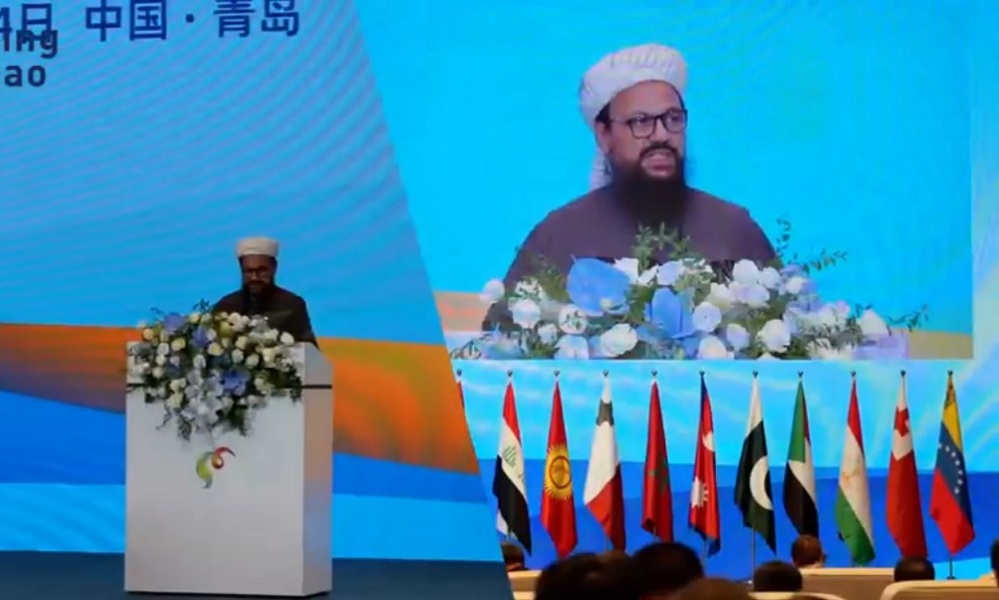
Acting Minister of Energy and Water Abdul Latif Mansour says the Belt and Road Initiative (BRI) project is vital in expanding the scope of trade and energy export between Afghanistan and China.
Speaking at the third meeting of energy ministers of BRI in China on Wednesday, Mansour expressed hope that Afghanistan could join this intercontinental construction project.
He stated Afghanistan has significant untouched natural resources and efforts to coordinate Afghanistan's energy sector with China can unlock these resources for the benefit of both countries and support regional energy security.
“Afghanistan is a country located along Central Asia, South Asia and the Middle East, which creates an important land bridge for regional connectivity. This position makes Afghanistan a key partner in China's Belt and Road Initiative, as it can facilitate land trade links and energy corridors connecting China to Europe,” Mansour said.
He added that Afghanistan's constructive partnership is for China's long-term strategic vision to increase connectivity in Asia, Europe and Africa as a belt and road.
According to him, Afghanistan can play an important role in supporting China's broad geopolitical and economic goals through cooperation in energy, trade and infrastructure development.
Referring to the energy production capacities in the country, he stated that based on the prepared plans, Afghanistan will provide its energy needs from domestic sources.
Mansour stressed that the opening of the Wakhan Corridor will further expand the relations between Afghanistan and China.
This route connects the northeast of Afghanistan to the Xinjiang region of China and opens a new window for trade and energy cooperation.
Latest News
BRICS member countries call on IEA to lift ban on Afghan girls’ education
The BRICS nations, more “visible and tangible actions” should be taken by the Islamic Emirate in Afghanistan to ensure that the country’s soil is not used by terrorists
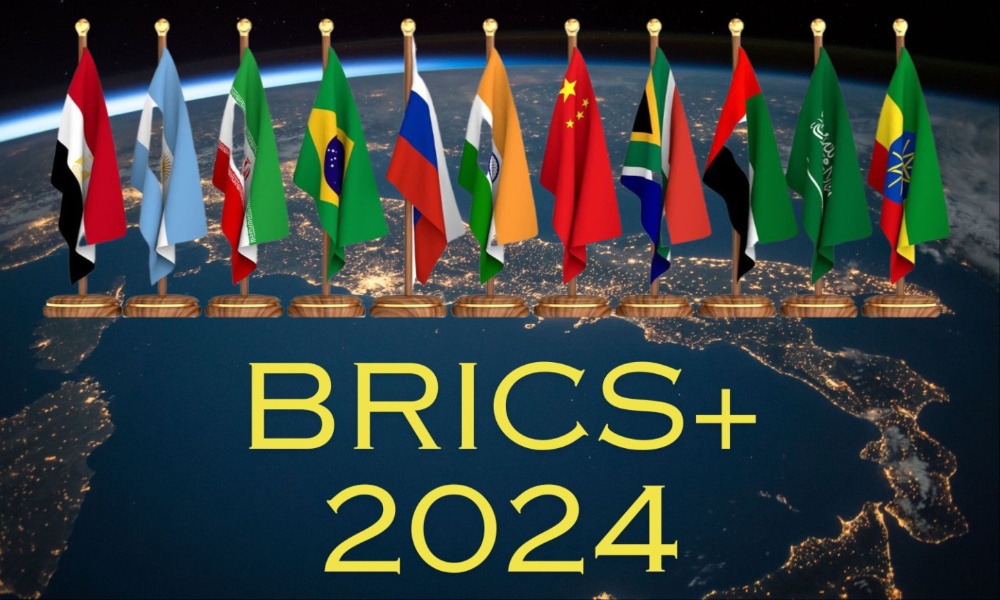
BRICS member countries called on the Islamic Emirate of Afghanistan to lift the ban on education for women and girls and to preserve the fundamental rights of all Afghan citizens, including women, girls and ethnic minorities.
According to a joint statement issued by the BRICS nations, more "visible and tangible actions" should be taken by the Islamic Emirate in Afghanistan to ensure that the country's soil is not used by terrorists.
The member nations stated that they support an Afghanistan free from "terrorist, independent and united" groups, and the Islamic Emirate is asked to take immediate and concrete measures in this regard.
These countries also pointed to the effective role of regional meetings with the participation of Afghanistan's neighboring countries and welcomed the efforts of these countries to facilitate the process of resolving the crisis in the country.
BRICS member countries said they believe that the participation of neighboring countries in the process of solving the Afghan crisis can help stabilize security and stability in the region.
The three-day meeting of the BRICS organization took place this week in Kazan, Russia.
A number of country leaders, including presidents of China, India, Russia, Turkey, South Africa, Iran, Egypt and Ethiopia attended.
The UN Secretary General Antonio Guterres was also present.
The summit wraps up on Thursday.
-
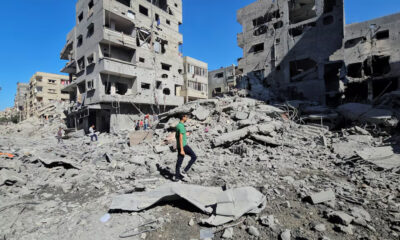
 World4 days ago
World4 days agoGaza health ministry says 87 killed in northern Gaza airstrike
-
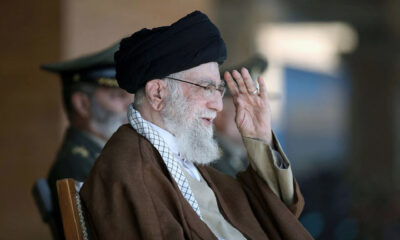
 Regional5 days ago
Regional5 days agoIran’s supreme leader says Hamas leader’s death will not halt ‘Axis of Resistance’
-
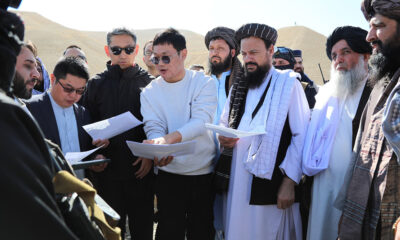
 Latest News5 days ago
Latest News5 days agoMinistry of Energy steps up efforts to solve Bamiyan’s electricity problem
-
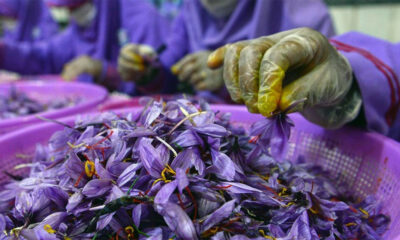
 Business4 days ago
Business4 days agoAfghanistan exports saffron, ferula assa-foetida worth $77.5 million in 6 months
-
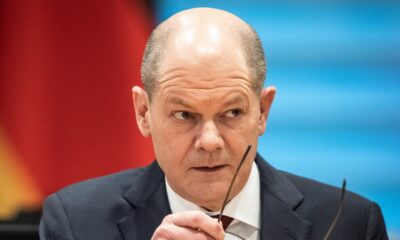
 Latest News4 days ago
Latest News4 days agoGerman chancellor says Afghan criminals will be returned
-

 Latest News4 days ago
Latest News4 days agoAfghanistan’s central bank approves new money-changers’ law
-

 Sport4 days ago
Sport4 days agoAfghanistan volleyball team beats Maldives in Central Asian championship
-

 Regional5 days ago
Regional5 days agoFormer Indian official wanted by FBI


